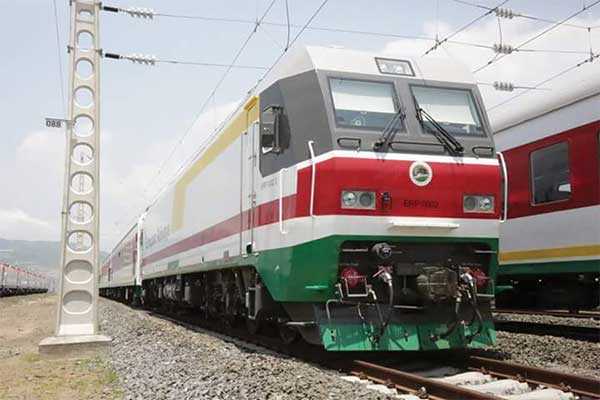Ethiopia inaugurates new rail line to Djibouti
Ethiopia officially inaugurated a new railway line linking Addis Abeba with a major port in Djibouti. The new railway line between Ethiopia and Djibouti covering 752kms is one of the few high-profile projects built at a cost of 3.4 billion US dollars.
The inaugural ceremony was attended by Prime Minister Hailemariam Desalegn of Ethiopia and President Ismail Omar Guelleh of Djibouti. Also in attendence were Chinese president's envoy, various high level government officials and the diplomatic community.
Prime Minister Hailemariam Desalegn speaking at the ceremony said the project will open a new era of enhanced cooperative partnership between the three countries elevating the socio-economic and political relations into a new high. The Prime Minister further noted that the new railway line will expedite Ethiopia's industrialisation effort.
Dereje Tefera, a Spokesperson at the Ethiopian Railways Corporation, noted that the Chinese-built 750-km electrified line "will minimise the cost of transport and the transport time and it's free from pollution, it uses renewable energy." The Spokesperson said that the project is "part of the trans-African railway network," adding that "it will give an opportunity for connecting Ethiopia with other neighboring countries."
In a joint effort of Ethiopia, Djibouti and China; for well over 13 months, tens of thousands technicians and workers from the three countries have worked tirelessly on the site of construction stretching 750 kilometers. It is the first standard gauge electrified railroad on the continent build with Chinese
It is expected to contribute to the economic well being of Ethiopia and Djibouti. Ethiopia as a land-locked country will be increasingly turned into a land-linked one with transport cost significantly drop and efficiency greatly improved. The status of Djibouti as a hub of international seaport will also be enhanced. During the construction, nearly 40,000 local jobs were created, and many of those have gained valuable skills and technics to operate sophisticated railroad machines. International investors across the board stand to gain from the railway.
With easier access to international maritime shipping, the existing investors in Ethiopia and Djibouti, be it from Europe, USA, India, Turkey or the others, will cut down significantly their cost and timing of transport. The Addis-Djibouti Railway, will not only contributes to regional wide connectivity, but also serves as a walking lab for all Africans to train their workers and make their own blue print of railway networks.






